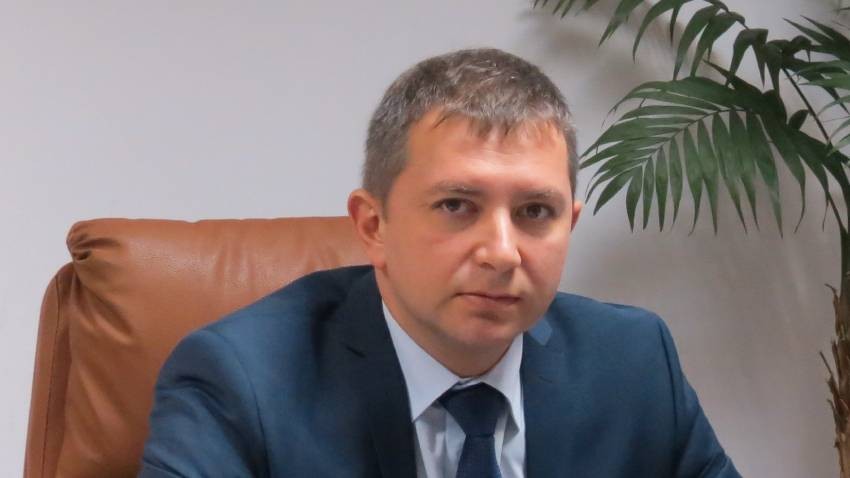“The moment you become very good at something, the high incomes will inevitably come. The world needs all kinds of people who can do a variety of things," a Bulgarian career development specialist says. However, it is important what the labor market can offer us at the moment. The demand for IT specialists has recently started to decline, according to data of the Employment Agency from the end of 2022. It has become clear that a large part of the vacant jobs are in the processing industry. It turns out that enterprises in all spheres of the economy face a shortage of personnel. Some of the most needed professionals are machine operators, as well as medium and highly-skilled technical personnel. There is also a continuing shortage of medical professionals, nurses and doctors, as well as teachers in the education system. Transport companies specialized in land, sea and air transport are also in dire need of personnel. Accountants, financiers, etc. are also highly needed.

"The study showed that in 2023 the Bulgarian labor market will need more than 200,000 workers and specialists with knowledge and skills in various professional fields," Dobrin Ivanov, executive director of the Bulgarian Industrial Capital Association, says.
"Unemployment is currently at a historic low in Bulgaria and we have never had a lower number of unemployed persons. They are less than 150,000 and these are not really unemployed people, because the majority of them are not looking for work and are not economically active. Accordingly, we also have record levels of employment and the labor market has been experiencing a labor shortage for years. There are many vacancies and no staff, whether qualified or not. This also has an effect on salaries, which were growing at a record-high rate in the past year. The Association also conducted a survey among 864 small, medium and large enterprises and it became clear that 30% of employers plan to hire workers but here the question is whether the labor market would be able to provide the needed workforce. However, 40% of employers think they will have to make lay offs and around 20% say there will be no change in the number of their employees. We are currently in a situation in which the demand for workers is greater than the supply and this situation will continue to be in effect during the year.”

What NSI data show is that Bulgaria is among the leaders for 2022 when it comes to growth of the average salary. The rise is three times bigger in comparison to that in the countries of Western Europe, where wages grow much more slowly. "This is also a consequence of the competitive labor market where new jobs are being opened, but it is difficult to find people for the positions," Dobrin Ivanov says and adds:
"The minimum wage rose by almost 10 percent on January 1. The demands of the trade unions and some of the parties represented in the parliament were for a bigger rise, but when you add the additional payments required by law, the salary becomes almost 450 euros, which is more than 50% of the average salary. Our message to workers is to make efforts for additional training so that they can work more efficiently and not to expect the government or trade unions to raise the minimum wage. The current trend is for continuing accelerated rise in remuneration. This is also what our survey showed - a large share of employers, although pessimistic about the economic growth in 2023, believe that remuneration will continue to rise at a rate of around 10% per year.”

Businesses like to operate in a calm and predictable environment, but such a favorable environment is not expected anytime soon. The unstable political situation in Bulgaria creates pessimistic attitudes among employers. Dobrin Ivanov told us more about this:
"This increase in the remuneration of the employees is exhausting to the Bulgarian enterprises, because this growth in remuneration deprives the companies of funds for investments. This is also shown by the NSI data on the spending for fixed assets that enterprises make. It has been decreasing for years precisely because of the rising remuneration. The rise in the price of electricity and the energy crisis in 2022, as well as the government's delayed response to compensating businesses are among other negative factors. We hope that with the decisions of the Council of Ministers and the National Assembly for compensation throughout 2023, this problem will be avoided.”
English: Al. Markov
Photos: BGNES, BICA, Freepik.com, library
The pig meat sector in Bulgaria is showing signs of growth. This was announced at the International Forum "Modern Trends in Pig Farming: Scientific, Market and Regulatory Aspects", held today in Stara Zagora. It was highlighted that 53% of the..
The total output at basic prices from the agriculture sector in 2024 amounts to €4,970.1 million, which is 7.9% less compared to the previous year. This decline is due to two main factors: a 3.2% decrease in the quantity of agricultural..
One of the largest cargo ships in the world docked for the first time at the Port of Varna, delivering 58,000 tons of rapeseed, BGNES reported. The shipment arrived from Canada and will be refined in Bulgaria. The delivery was made due to a..
The pig meat sector in Bulgaria is showing signs of growth. This was announced at the International Forum "Modern Trends in Pig Farming: Scientific,..

+359 2 9336 661
